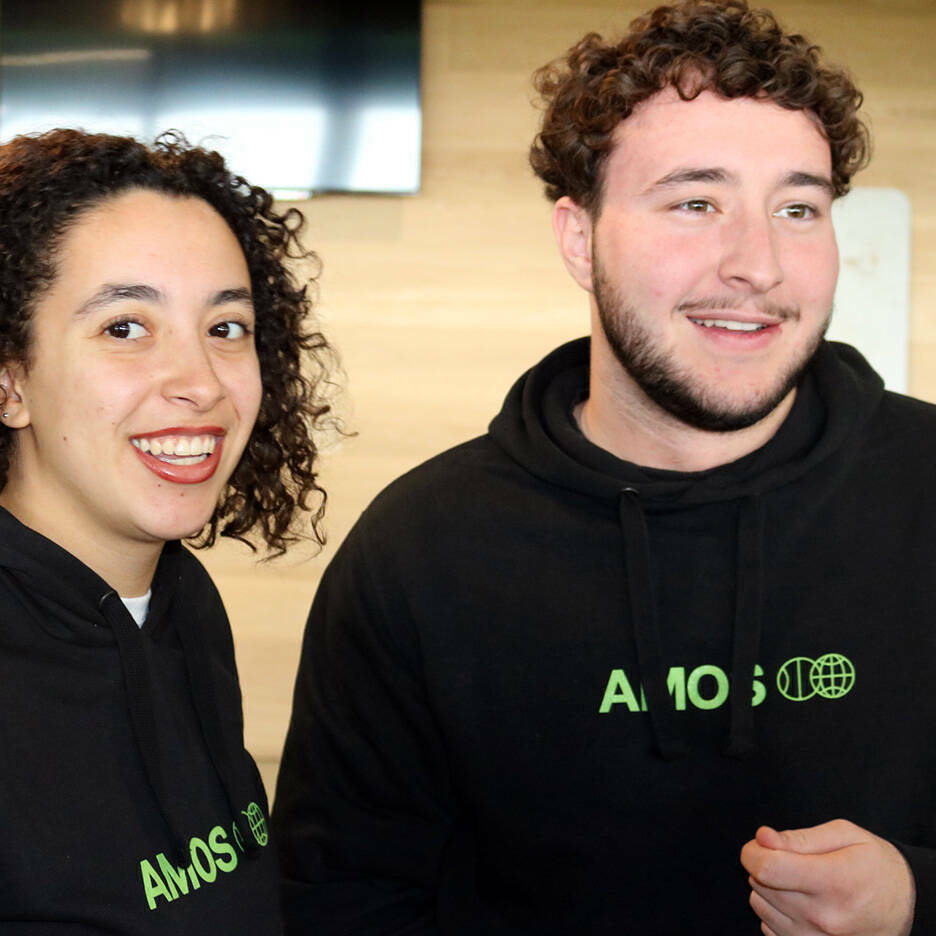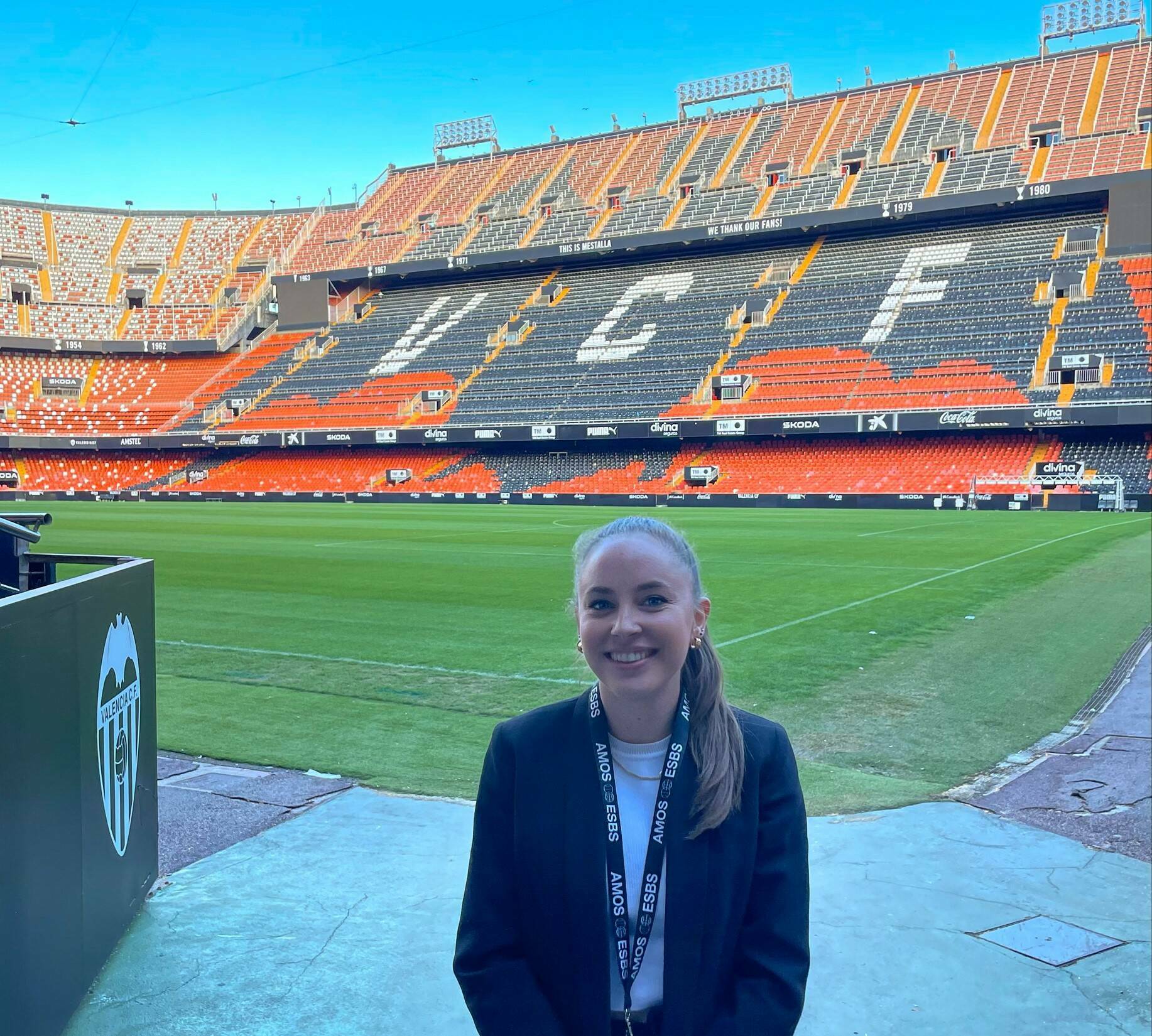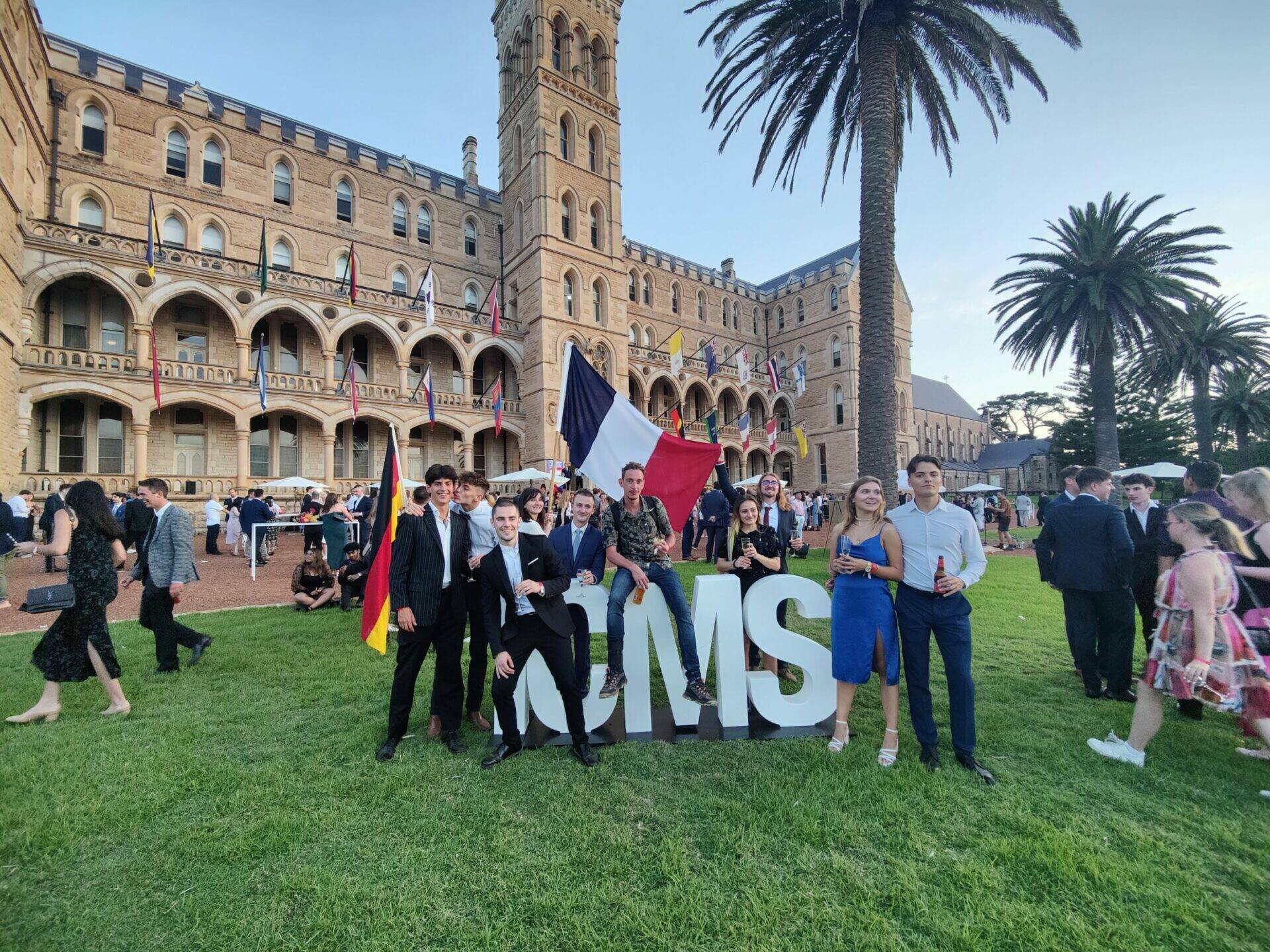Sponsorship Manager
HOW TO BECOME A SPONSORSHIP MANAGER
Sponsors are a vital element of the world of sport, as essential as the athletes themselves. They represent an important source of income for sports clubs and leagues. In turn, brands use sponsorship as a means to convey a positive image and values. In the context of sports business, sponsorship managers hold a privileged position.
What is sponsorship applied to sport?
For the French sports market, sports sponsorship accounts for the largest share of revenues. In 2017, it accounted for 50% of the amounts earned by clubs alongside ticketing, TV rights and merchandising (according to a Sporsora study).
Sponsorship is highly beneficial for advertisers. It gives them greater visibility and brand awareness. It also enables them to reach a wider, more targeted audience. This is the case, for example, when the name of a stadium or tournament includes the company’s name (Groupama Stadium, AccorHotels Arena, Ligue 1 Conforama…).
Many companies are also associated with major sporting events and clubs, and are often official partners, in some cases for many years. BNP Paribas has been the official partner of Roland Garos for over 40 years, and of the French Tennis Federation in general. The cycling tournament, the Tour de France, is as famous for its climbs in the Alps as for the goodies distributed by tournament partners during the races. The change of logo from Fly Emirates to Accor on the shirts of Paris Saint-Germain soccer club gone unnoticed.
For clubs, it’s above all a considerable source of revenue. It allows them to assert their positioning and values by partnering with certain companies. The Made in France trend is also taking hold in sponsorship. French clubs and federations prefer to work with a French equipment manufacturer, to demonstrate their position vis-à-vis a local brand. Le Coq Sportif has been named official equipment supplier to Les Bleus for the Olympic Games in 2024.
It’s in this competitive world that the sponsorship manager has to battle to find the best sponsors and at the best price.
What are the duties of a sponsorship manager?
Sponsorship management is a marketing profession. Also known as partnership directors, sponsorship managers boast a keen understanding of the sports market and of companies seeking partnerships. They typically work for sports clubs, non-profits or sports leagues.
Their key mission consists in finding new sponsors. Sponsorship can also be likened to a form of patronage for sport. Sponsorship managers are active at every stage of the sponsorship process to guarantee a successful outcome.
Upstream, together with their team, they define partnership priorities in line with the club’s values and policy. Furthermore, they must ensure ROI (return on investment) and profitability.
Their team is in charge of targeting and prospecting potential businesses. They may also wish to organize events to attract sponsors. They assume the role of event organizer. Main targets are equipment manufacturers and large listed corporations who are concerned with their brand image.
They are in charge of negotiating and signing contracts with advertisers. To this end, they work hand-in-hand with the club’s legal team to make sure contracts meet every requirement. This essential stage allows sponsors to put their name on a stadium or their logo on jerseys and to negotiate profits. Sponsorship managers must make sure that the contract will not harm their club. The next step is to set up and monitor the sponsorship process and check that the contracts are properly applied.
To this end,
they work in close partnership with marketing and communication directors. They are responsible for ensuring that external communication and sports marketing are in line with contracts: logos show in the right place, the partner is mentioned in a post on social media, official partners are showcased, the brand’s image is respected… Together, they draw up the communication and marketing strategy for the club.
Maintaining a special relationship with the various partners also requires the manager to run the partner network, for example, by organizing private events or sending out invitations to sporting events, and thereby nurturing relations with partner companies.
What qualities are required?
Working in sponsorship requires certain qualities and skills. Professionals in the field must:
- Demonstrate good interpersonal skills: as they are on the front-line during negotiations with partners, they must be comfortable creating a rapport with potential sponsors. This quality is essential for managing the partner network overall.
- Master negotiation techniques: to defend their club, they must be capable of holding their own during negotiations concerning terms and conditions with potential sponsors. A flair for persuasion is recommended in such situations.
- Know the law: although they are supported by the club’s legal team, Sponsorship Managers should be familiar with current legislation if they are to negotiate effectively.
- Be fluent in English: most advertisers are global corporations. Speaking one or several foreign languages is the best way to build privileged relationships with companies.
How much do sponsorship managers earn? What are their career prospects?
Salary depends on the club for which they work and years of experience. They can expect to earn somewhere between €2,000 and €3,000 gross monthly. Performance bonuses are also part of their compensation package.
With experience, sponsorship managers may turn to large national clubs for more responsibilities. They may also choose to cross to the other side and work with advertisers. Another option would be to handle sponsorship for a top-level athlete.
Alternatively, they could switch to marketing and communication for a club, as their professional experience means they already have basic skills in those areas. Sports event management is also an option.
What are the qualifications required to become a sponsorship manager?
A Bac+5 level diploma is common for this type of job. A Bachelor’s degree combined with a Master’s enables students to develop a wide range of skills. In addition to broadening their knowledge of the sports market, students specialize in sports management, communications and marketing.
The presence of international advertisers is central to the world of sponsorship, so fluency in English is essential. An international curriculum enables students to develop a high level of English and a knowledge of the international sports market. The 2-year Global Master of Business in Sport diploma is an alternative for students with a bac+3. Entirely in English, students are exposed to the realities of sport in Europe, Asia and the Americas, thanks to semesters and trips to these regions.
For the French sports market, sports sponsorship accounts for the largest share of revenues. In 2017, it accounted for 50% of the amounts earned by clubs alongside ticketing, TV rights and merchandising (according to a Sporsora study).
Sponsorship is highly beneficial for advertisers. It gives them greater visibility and brand awareness. It also enables them to reach a wider, more targeted audience. This is the case, for example, when the name of a stadium or tournament includes the company’s name (Groupama Stadium, AccorHotels Arena, Ligue 1 Conforama…).
Many companies are also associated with major sporting events and clubs, and are often official partners, in some cases for many years. BNP Paribas has been the official partner of Roland Garos for over 40 years, and of the French Tennis Federation in general. The cycling tournament, the Tour de France, is as famous for its climbs in the Alps as for the goodies distributed by tournament partners during the races. The change of logo from Fly Emirates to Accor on the shirts of Paris Saint-Germain soccer club gone unnoticed.
For clubs, it’s above all a considerable source of revenue. It allows them to assert their positioning and values by partnering with certain companies. The Made in France trend is also taking hold in sponsorship. French clubs and federations prefer to work with a French equipment manufacturer, to demonstrate their position vis-à-vis a local brand. Le Coq Sportif has been named official equipment supplier to Les Bleus for the Olympic Games in 2024.
It’s in this competitive world that the sponsorship manager has to battle to find the best sponsors and at the best price.
Sponsorship management is a marketing profession. Also known as partnership directors, sponsorship managers boast a keen understanding of the sports market and of companies seeking partnerships. They typically work for sports clubs, non-profits or sports leagues.
Their key mission consists in finding new sponsors. Sponsorship can also be likened to a form of patronage for sport. Sponsorship managers are active at every stage of the sponsorship process to guarantee a successful outcome.
Upstream, together with their team, they define partnership priorities in line with the club’s values and policy. Furthermore, they must ensure ROI (return on investment) and profitability.
Their team is in charge of targeting and prospecting potential businesses. They may also wish to organize events to attract sponsors. They assume the role of event organizer. Main targets are equipment manufacturers and large listed corporations who are concerned with their brand image.
They are in charge of negotiating and signing contracts with advertisers. To this end, they work hand-in-hand with the club’s legal team to make sure contracts meet every requirement. This essential stage allows sponsors to put their name on a stadium or their logo on jerseys and to negotiate profits. Sponsorship managers must make sure that the contract will not harm their club. The next step is to set up and monitor the sponsorship process and check that the contracts are properly applied.
To this end,
they work in close partnership with marketing and communication directors. They are responsible for ensuring that external communication and sports marketing are in line with contracts: logos show in the right place, the partner is mentioned in a post on social media, official partners are showcased, the brand’s image is respected… Together, they draw up the communication and marketing strategy for the club.
Maintaining a special relationship with the various partners also requires the manager to run the partner network, for example, by organizing private events or sending out invitations to sporting events, and thereby nurturing relations with partner companies.
Working in sponsorship requires certain qualities and skills. Professionals in the field must:
- Demonstrate good interpersonal skills: as they are on the front-line during negotiations with partners, they must be comfortable creating a rapport with potential sponsors. This quality is essential for managing the partner network overall.
- Master negotiation techniques: to defend their club, they must be capable of holding their own during negotiations concerning terms and conditions with potential sponsors. A flair for persuasion is recommended in such situations.
- Know the law: although they are supported by the club’s legal team, Sponsorship Managers should be familiar with current legislation if they are to negotiate effectively.
- Be fluent in English: most advertisers are global corporations. Speaking one or several foreign languages is the best way to build privileged relationships with companies.
Salary depends on the club for which they work and years of experience. They can expect to earn somewhere between €2,000 and €3,000 gross monthly. Performance bonuses are also part of their compensation package.
With experience, sponsorship managers may turn to large national clubs for more responsibilities. They may also choose to cross to the other side and work with advertisers. Another option would be to handle sponsorship for a top-level athlete.
Alternatively, they could switch to marketing and communication for a club, as their professional experience means they already have basic skills in those areas. Sports event management is also an option.
A Bac+5 level diploma is common for this type of job. A Bachelor’s degree combined with a Master’s enables students to develop a wide range of skills. In addition to broadening their knowledge of the sports market, students specialize in sports management, communications and marketing.
The presence of international advertisers is central to the world of sponsorship, so fluency in English is essential. An international curriculum enables students to develop a high level of English and a knowledge of the international sports market. The 2-year Global Master of Business in Sport diploma is an alternative for students with a bac+3. Entirely in English, students are exposed to the realities of sport in Europe, Asia and the Americas, thanks to semesters and trips to these regions.






